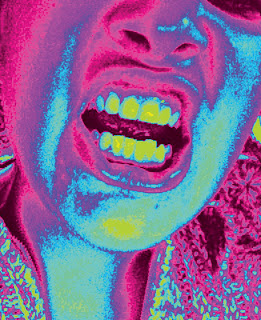Mom says, “We were lucky to have found dad.”
She’s right. My biological father, whom I never knew, left home when I was 4 years old. I remained fatherless until mom re-married four years later, hooking up with a New Jersey Italian she met through her sister.
He took us on—mom, my brother and me— as if we were his own. He quickly laid down the law, setting boundaries and establishing family as the end of all things.
As mom says, I was lucky to have been taken under his wing, flawed as he might have been, and through him I learned the measure of a man, enough so that I grew fond of him, loved him, and eventually started calling him “dad.”
For sure, he wasn’t perfect, he couldn’t fix his own car to save his life, yet one of his favorite things to say was that he was like Buddha, perfect in all ways, never to be crossed or taken lightly, and wise beyond reason. My job, he was fond of reminding me, was to “listen.” He even had the belly of a Buddha, which he sported and caressed without embarrassment or apology.
He loved food and he loved women but most of all he loved mom.
Women seemed to love him too, even though he didn’t appear to have Adonis DNA, or the blood of a tiger. To the contrary, he was like, as he sometimes would say, the Pillsbury® Doughboy, soft and cuddly and always available for a squeeze.
It amazed me how the ladies seemed to relax and laugh more when he talked to them. He teased them and they teased back, playful banter and innuendo that made even my young adult cheeks blush. Mom could just as easily roll her eyes as participate in such discussions, which were not her forte.
Nonetheless, dad was fiercely devoted to her; he defended and protected her in ways that are only now becoming clear to me as I watch her adjust to widowed life after nearly 45 years of marriage. She seemed to have fewer cares then, he wouldn’t allow her to become anxious or worked up and made sure her needs were well met.
They were a good team: She took care of him in the old-fashioned way of preparing meals and keeping him well-fed while he protected her the best he could from need or harm.
I seldom heard dad argue with mom; their arguments, he’d say, were no one’s business but their own. That’s why, when they needed to discuss something that might get heated, they took their personal business behind closed doors.
My own spats with him were few but memorable.
During a rough patch, when as a union man he feared there might be a labor strike, and that he would no longer be able to support his adopted family, he enjoyed a cocktail more than usual, but otherwise kept his temper and rarely flared, even when things were really tough.
One night, though, we got into an argument. I was 17 and wanted to go out with friends who were driving down to the beach for a party. My parents said, “No.”
I got angry and started mouthing off to dad. He backed me against the wall and put his hands around my throat. He’d had enough of my teenage rudeness, back talk—which he hated—and foolish attempts to be more independent.
“Take your hands off me,” I said, “or I’ll fight back.”
That didn’t seem to scare him and he kept me pinned against the wall. I could smell his breath and see the frustration in his face.
“You’ve been drinking, haven’t you?” I said.
Immediately, he let go. It was the first time he’d ever done anything like that. I think it shocked us both. I stormed out of the house that night and walked the streets until my anger subsided, but it took years, I think, for us to fully recover, and for me to grow out of my boyish ways.
Less than one year after my first and only physical confrontation with my father, however, my parents told me, “We’ve decided that you’re old enough now to pay the consequences for your own decisions. We’re not going to tell you what do to any more.”
Finally, I thought, “I’m a man.” §

